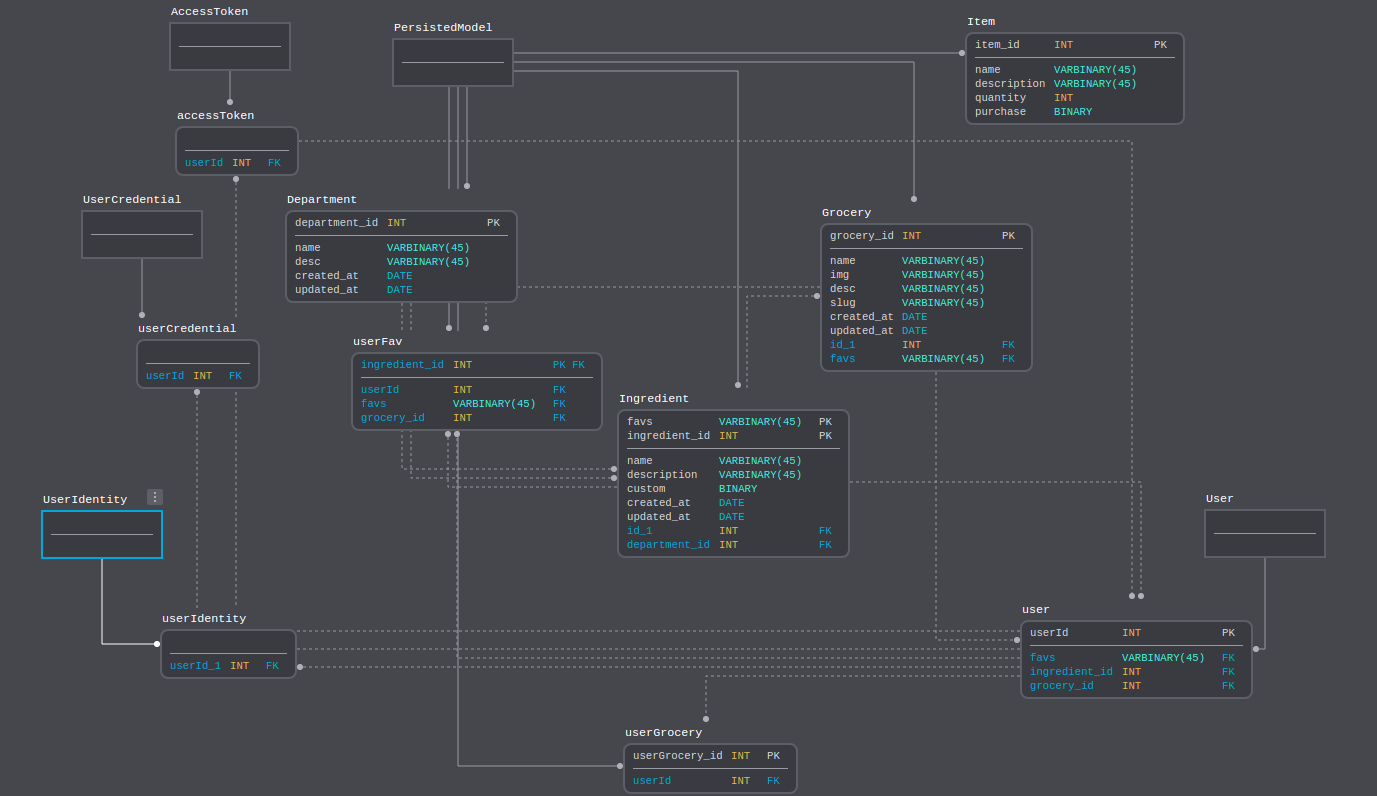imported from @groceristar/groceristar-fetch plugin and partially from Food-static-data: https://github.com/GroceriStar/sd
More about this plugin here:
 Details about current DB scheme: https://medium.com/groceristar/database-schema-of-groceristar-current-release-20dc1b4be7b9
Details about current DB scheme: https://medium.com/groceristar/database-schema-of-groceristar-current-release-20dc1b4be7b9
This is a strucuture that we have in our models: https://github.com/ChickenKyiv/database-visuals/tree/master/groceristar/models same structure we use at groceristar-fetch, so we can easy grab data, that we need. database(we'll use it later):
"url": "mongodb://heroku_p3w65n77:[email protected]:35065/heroku_p3w65n77",
"name": "groceryDS",
This is a list of methods, that we have in our Frontend Version. I can be like a checklist for us. In order to fully migrate from REST API server to graphQL we'll need to cover all of this cases: https://medium.com/groceristar/groceristar-website-methods-list-75b57e1414ae
This is our main documentation space, related to Groceristar project: https://groceristar.github.io/documentation/
npm install
Graphql server will be running in http://localhost:3000/
You can explore all schema types
I have some collection of tutorials, websites, related to GraphQL topic, storing it here: https://github.com/ChickenKyiv/awesome-graphql-beginner-links
as default webpack config didn't support babel 7 yet, we have both versions at package.json
install?? looks like it's old version // "babel-plugin-syntax-async-functions": "^6.13.0", // "babel-plugin-transform-regenerator": "^6.26.0", // // "plugins": [ // "syntax-async-functions", // "transform-regenerator" // ] // https://itnext.io/building-a-graphql-api-using-graphql-yoga-lambda-and-mongodb-c0c195621f47 https://medium.com/@xoor/coding-a-graphql-api-with-node-js-c02d617f49f4
- relations. i think we should debate each relation. because I think
our schema(picture that we have) have more old-fashion logic. For example -
UserGrocerytable - it can be just part ofUsertype. I saw a lot of big projects, that just put everything in one place and then parse it. - for me its hard to keep in mind that we have
Items.I mean I have in my head structure of groceristar without items, and all documentation, methods related to it. maybe it will be more easy for me - when I finish dealing with our old servers. So I propose to have our development in two ways: a) just recreating/replacing our current GS server - so when we create for example a query or method - we just open my old code - see how it works and does the same logic
b) we can work with items in parallel, but we need to be aware that this part of schema doesn't have our documentation coverage, so we'll need to create everything from scratch. it's not a problem for me, but I'll be more supportive to items version when I'll know that we did basic important methods for ingredients, grocery, departments. these 3 types have some complex things and I want to address them first.
btw, if you have questions - ask them more specifically. and I think at another task.


